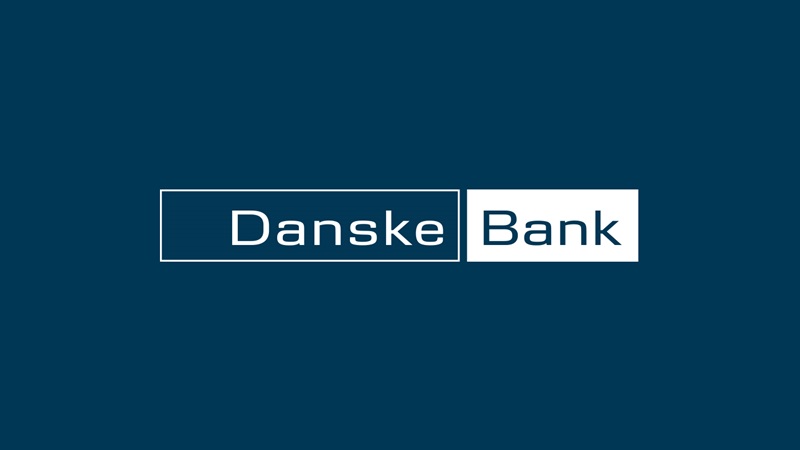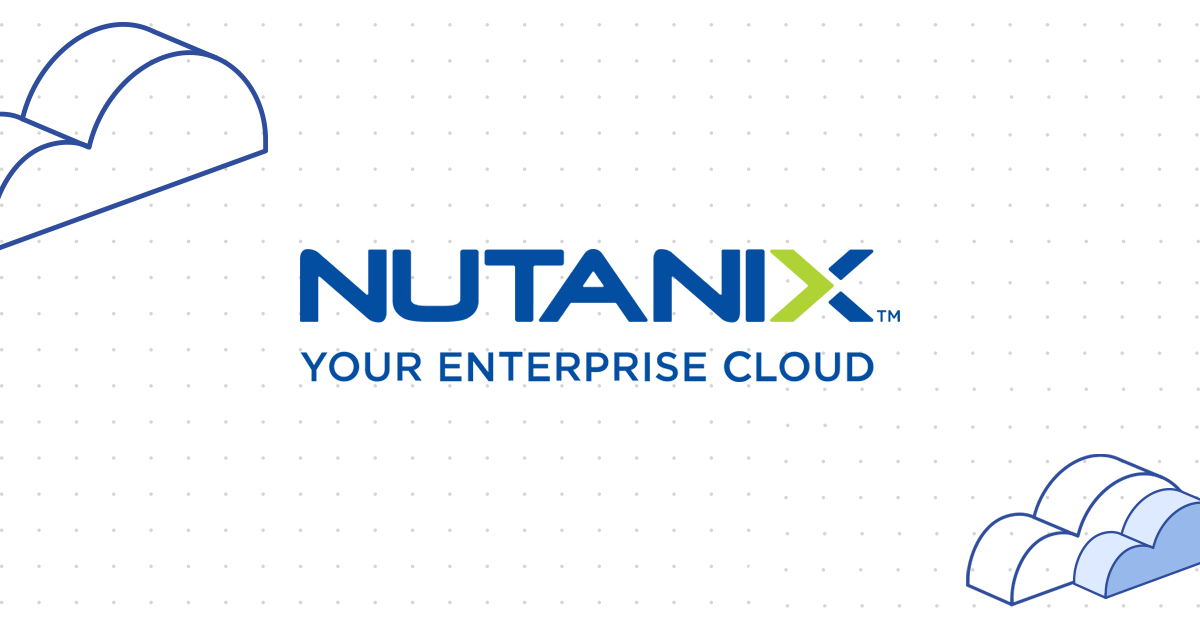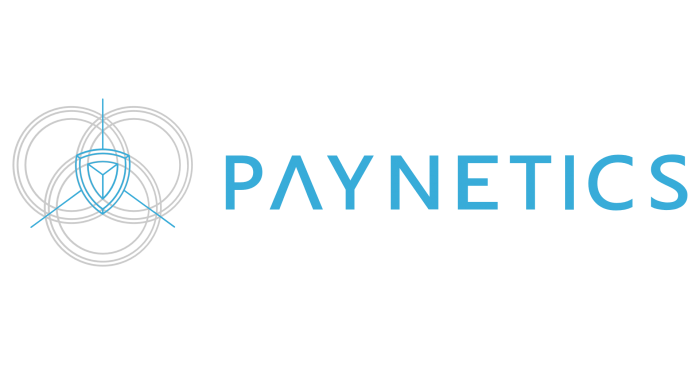Published
- 08:00 am

Community bank leverages Nexus Vision mortgage BI software to inform mortgage process optimization
SimpleNexus, a nCino company and developer of the United States’ leading homeownership platform for loan officers, borrowers, real estate agents and settlement agents, today announced that Elberton, Georgia-based Pinnacle Bank (Pinnacle) has implemented Nexus Vision™ to support optimization of the bank’s mortgage operations with turnkey business intelligence (BI).
Founded in 1934, Pinnacle is a community bank with $2 billion in total assets and a loan portfolio of $1.18 billion. Its engagement with Nexus Vision is part of a larger strategic effort to improve the profitability of a mortgage operation that has successfully served the home financing needs of customers for many years but has not always been a meaningful contributor to Pinnacle’s balance sheet.
“Nexus Vision provides tactical, up-to-date reporting that helps our mortgage sales and operations managers run the business more efficiently and spot bottlenecks sooner,” said Bill Corbet, president of Triple Crossing Consulting and the managing director of Pinnacle’s mortgage division. “These data insights are informing a top-to-bottom process re-engineering that has already reduced mortgage cycle times by over 50 percent and significantly improved net mortgage income.”
Nexus Vision is enterprise-grade BI software for mortgage lenders. Its visually intuitive dashboards provide executives, branch managers and individual contributors with actionable insights into mission-critical business operations from production and pipeline metrics to employee, branch and partner performance scorecards.
“Decisions are the currency of any modern business,” said SimpleNexus EVP and General Manager Lori Brewer. “Nexus Vision provides the foundational data and insights lenders need to make better-informed decisions for a healthier bottom line. We are proud to be working with Pinnacle Bank to help transform mortgage lending into a line of business that serves shareholders just as well as it does customers.”
Related News
- 07:00 am

The Bank of London, the next-generation technology company and the world’s first purpose-built global clearing, agency, and transaction bank, today announced the appointment of Geoff Russell as a Non-Executive Director (NED) and Chair of the UK Bank Board Audit Committee (BAC), effective immediately.
Russell has over ten years’ experience as a Chair and NED, with high profile roles in industries including banking, Fintech and Edtech. He has held senior positions across various committees including audit, risk, credit, investments, and remuneration/nominations. Russell is a qualified accountant – who spent over 25 years at KPMG – with 13 years as a Partner. During this time, he oversaw sectors such as Global Banking, Public Sector, and was Practice Lead for emerging markets. In 2006, he was seconded from KPMG to HM Treasury as Director of Financial Management and shortly after retiring from KPMG, he was appointed by the United Kingdom (UK) Government to lead the Learning and Skills Council, the largest non-departmental public body in the UK at the time.
David Skillen, Chairperson UK, The Bank of London: “Geoff has an impressive domestic and international background, having undertaken assignments in over 80 countries. The complexity of roles he has succeeded in during his long career, as well as the trust put in him by HM Government is a clear indicator that he is an outcome focussed leader, and will add tremendous value to our growing firm as both a board member and BAC Chair”.
Geoff Russell says, “I’m excited to be joining The Bank of London at this transformative stage of its journey. I’m delighted I can help drive the firm’s long-term financial performance whilst ensuring a robust and agile control framework. I have full confidence that we will differentiate ourselves using our innovative and patented technologies, to drive transparency, reduce complexity and make banking better for all”.
Related News
- 07:00 am

In 2020, Danske Bank informed the Danish Data Protection Agency (the DPA) that identified instances of personal data were stored for a longer period than necessary. This was announced in a press release published in December 2020, in which we also emphasised that our customers’ data was secure, which it still is. Since then, Danske Bank has discussed with the DPA the bank’s efforts to regularly delete customer data in the bank’s systems.
The DPA has now informed Danske Bank that it has filed a criminal complaint against the bank for violation of the General Data Protection Regulation (GDPR) and recommends that the Danish prosecution service impose a fine on Danske Bank.
“First and foremost, it is important for me to emphasise that our customers’ data is secure and has been secure all along. As we have previously communicated, identified instances of personal data have, unfortunately, been stored for a longer period than necessary, and that should obviously not have taken place,” says Bo Svejstrup, Executive Vice President and Chief Technology Officer at Danske Bank, adding:
“We have continuously focused on adjusting and implementing time limits for deleting data in our systems, and we have made good progress with our efforts. Throughout the process, we have had a productive dialogue with the DPA. However, we have also had to recognise that the task is very complex and that the implementation of time limits for deleting data in certain systems has proven time-consuming. We now take note of the DPA’s recommendation and continue the task of deleting the data that we no longer have any reason to store while we await the outcome of the matter.”
We are constantly working to ensure that we and our systems meet the requirements for the storage and erasure of personal data. We note that the DPA has attached importance to Danske Bank’s active participation in the clarification of the matter.
Related News
- 02:00 am

EnKash, an India-based, all-in-one Spends Management Platform and Corporate Cards company, has raised US$ 20 million as a part of its Series B round that was led by Ascent Capital and joined by Baring India & Singapore-based White Ventures. The round also saw participation from existing investors, Mayfield India and Axilor Ventures.
EnKash has been a pioneer in unifying cards and spend management and features financial automation tools, enabling businesses to manage payables, receivables and expenses on the fly, powered by a DIY-Platform first approach
"Expenses are just a tiny sliver of a company’s payables and expense management platform is just one software. Financial teams also need to manage statutory payments, supplier payments, payroll and reconcile bank accounts, often in different countries, resulting in an overwhelming amount of work. Similarly, account receivables required paper or email-based invoicing, offline collections, and hassled reconciliation. Our objective is to allow the customers to save time & money. We intend to cut short the cycles of manual work & processes while offering products & services in a completely DIY mode on our platform. The customer should not be hassled with multiple platforms, banking portals & manual coordination to get the right product," said Naveen Bindal, Co-founder, EnKash.
EnKash was founded by veterans in the cards and payments space - Naveen Bindal, Hemant Vishnoi and Yadvendra Tyagi. Their deep knowledge with rich experience of more than 20 years each, primarily gained from working with large payment processing companies, banks and fintechs, allowed them to build the right product market fit in a short span of time. The team partnered with SBM India to roll out its cards issuance business and forged healthy partnerships with banks such as ICICI, Axis, Kotak, HDFC and SBI to name a few. In December 2020, the team stitched together a strategic alliance with Mastercard, the leading global payment network processor.
Subhasis Majumder, partner at Ascent Capital, elaborated on what excited his team to partner with EnKash in their next phase of growth: "Businesses are struggling with archaic and disconnected systems to spend, track, process, budget and manage their funds. A problem statement that resonates universally as evinced by the emergence of solution providers across the globe in the last couple of years. Similarly, in India, EnKash has stepped-up to democratize access to the best-in-class software and payments. We believe that EnKash is poised to continue leading this growing US$ 500 Billion plus market, on the back of its comprehensive offering, impressive execution velocity, prudent capital allocation and experienced leadership team; a team with whom we have successfully worked in the past."
"The pull of the product is evident in EnKash’s remarkable growth through referrals and word-of-mouth recommendations. Baring is excited to back this experienced founding team that has created a valuable proposition and is well positioned to gain disruptive growth in this untapped corporate payment market, both in India and overseas," said Debanshi Basu from Baring India.
"EnKash is unique in its vision to save teams’ time and money by building the future of the CFO suite. We were very impressed by the product-thinking behind the EnKash platform and also the leadership team," said Sweta Rau from White Venture Capital.
Vikram Godse, Managing Partner, Mayfield India added, "Over the last few years, we have had a front row seat to the execution capabilities of the team at EnKash and they have done a phenomenal job at scaling the business – the metrics are there for all to see. We strongly believe that startups catering to the large fintech market in India will create world beating products and this is exactly what the team at EnKash is building."
"EnKash is working with an objective to offer better experiences and accessibility of financial and non-financial products for businesses. It intends to further expand its offerings with the infusion of fresh capital and lead the space with innovative offerings around banking-as-a-service, scaling up its ‘plug and play’ cards issuance stack and plans to expand its geographical presence on the international front," said Hemant Vishnoi, Co-founder, EnKash.
The much-needed disruption in the corporate spends management space has been witnessed globally as multiple startups targeting this space have sprung up. Ramp, Brex, Airbase, TripActions, Divvy and Jeeves in the USA; Pleo, Payhawk, Spendesk, and Soldo in the EU; and Nium and Spenmo in the Asia-Pacific region are some of the prominent companies in their respective geography.
EnKash had roughly 30 employees two years ago and now it is close to 120 employees, equipping itself to maximize the opportunity at hand. The startup, at present, boasts of processing annualized spends worth ~$2B on its platform. Other key metrics that the Company tracks include 70K+ businesses and 500K+ issued cards – a distribution feat that the company has achieved in a supremely capital efficient way, having previously raised $3M from Mayfield and Axilor Ventures as a part of its Series A round in 2019. The company was seed funded by Axilor Ventures.
View source version on businesswire.com: https://www.businesswire.com/news/home/20220404005471/en/
Related News
- 03:00 am

- Global study reveals online fraud attacks grew at a faster pace than legitimate online transactions;
- 794% increase in fraud on digital entertainment transactions;
- Account Takeover (ATO) tops the list of top fraud scams of 2021.
Feedzai, the world’s first RiskOps platform for financial risk management, has released its quarterly Financial Crime Report, The RiskOps Age, based on an analysis of over 18 billion global banking transactions throughout 2021. The report identifies trends in consumer spending and fraud attacks and compares transactional intelligence from 2021 with the previous three years to provide insights from the pre-pandemic era vs. the first and second years of the pandemic. One of the main conclusions is that while online transactions grew 65%, online fraud attack rates grew by 233%.
“The shift from in-person transactions to online transactions, along with the plethora of devices and accounts each person has, creates vast amounts of data points. From a fraudster’s point of view, this is the best case scenario. It’s easier for them to hide in all that noise,” said Jaime Ferreira, VP of Global Data Science at Feedzai. “But it also creates opportunities for banks to create more effective and personal products and services. It’s for both of the reasons that we’ve called this report The RiskOps Age. Now is the time to connect teams and data to prevent fraud and provide elevated customer experiences.”
The data shows that consumers shifted to digital entertainment platforms during the pandemic, and so did fraudsters. Criminals often like to hide in plain sight, and the sheer number of transactions for digital entertainment combined with the low dollar amount per transaction provides fraudsters with an ideal environment to test stolen cards along with other scams. Feedzai's Financial Crime Report saw a 794% increase in fraud attacks on digital entertainment transactions in 2021 vs. 2019.
“Living the digital lifestyle adds a world of convenience, but also provides a low-risk, high-reward environment for fraudsters,” adds Ferreira. “It’s the perfect place for fraudsters to hide – in a massive number of low-dollar amount transactions. The more transactions, the more opportunities for them to test stolen cards or other scams. Consumers and banks need to watch out for those small fraud transactions before they add up to big bills.”
Top Fraud Scams
With fraud on the rise, the report also identified the top five fraud scams, with account takeover (ATO) and social engineering attacks ranking as fraudsters’ current favorite schemes. The top scam on the list has risen from fourth to first place since last year. ATO is a form of identity theft where fraudsters change account information, including passwords, and "take over" the account.
Top 5 fraud attacks:
- Account Takeover
- Social Engineering Scams
- Purchase Scams
- Impersonation Scams
- Smishing Scams
Fraud in other parts of the world
The United Kingdom of Fraud:
In the U.K., banking fraud attacks are 50% more common when British consumers banked via desktops and laptops, telephone, or in-person combined vs. through a mobile banking application.
For mobile devices, fraudsters attempted 30% higher pound (£) amounts of fraud on Android devices, but fraud rates were 67% higher on iOS devices.
The United States of Fraud:
In our previous Financial Crime Report, we focused on the trend away from cash. Now we see that cash didn’t bounce back even when many pandemic-related restrictions were lifted. In fact, we saw a steeper decline in U.S. cash withdrawals comparing 2021 to 2020 vs. 2019 to 2020. Overall, U.S. cash withdrawals decreased 75% from pre-pandemic levels to today.
And for those who are thinking about a vacation in the United States, the report further ranked the top six U.S. tourist cities by fraud rate with Miami, Los Angeles, and San Francisco taking first, second, and third spots respectively. After a gradual climb from the number three ranking in 2019 and number two in 2020, Miami overtakes San Francisco as the tourist city with the highest fraud rate, up 511 percent. San Francisco drops to number three with a 42 percent decrease in fraud rate.
In fourth place is New York City with a 160% increase over last year, followed by Orlando (+15%) and Las Vegas (+334%).
How Consumers Can Prevent Social Engineering Attacks
- Remember, the click is a trick: Don’t open or click on suspicious links via email or text. Fraudsters can’t trick you if you don’t click on their links.
- Update devices: Install and regularly update anti-malware software. When your computer or phone prompts you to install updates, do it.
- Protect your privacy: Don’t provide personal information about yourself or your employer unless you are 100 percent sure the person you’re interacting with should have access to that information.
- Use multi-factor authentication: Do not reveal personal or financial information in an email, and do not respond to email solicitations for this information. This includes clicking on links sent via email.
- Don’t believe the hype: If an offer, prize, or opportunity is too good to be true, it isn’t true. Don’t fall for tempting out-of-this-world offers.
Access Feedzai’s Quarterly Financial Crime Report to learn more about the latest fraud and consumer trends. Further details on the report can be found on the Feedzai blog: Q2 2022 FinCrime Report: The RiskOps Age | Feedzai.
Related News
- 08:00 am

Nutanix has appointed two seasoned experts in Mandy Dhaliwal as Chief Marketing Officer and Shyam Desirazu as Head of Engineering. Each brings more than two decades of experience building and scaling high performing, mission-driven organisations. They will both report to Rajiv Ramaswami, the Chief Executive Officer at Nutanix.
“Both Mandy and Shyam are exceptional leaders with proven technological savvy and unique insight into what it takes to build and drive industry leading solutions that meet the needs of the market,” said Rajiv Ramaswami, President and Chief Executive Officer at Nutanix. “The addition of Mandy and Shyam to our organisation will be instrumental in driving our vision as Nutanix continues its next phase of growth.”
“I am very excited about the opportunity to take Nutanix’s industry leading cloud platform to market and showcase how we uniquely enable enterprises to modernise their applications and digitally transform their businesses with speed, simplicity and efficiency,” said Dhaliwal. “As we move steadily into a hybrid multicloud era, I will be laser focused on driving long-term sustainable growth for the Nutanix business and tangible value for our customers.”
Dhaliwal brings to Nutanix more than 25 years of experience in driving growth and innovation strategies across the cloud and software markets, and building high performing, mission-driven organisations. In this role, she will work closely with the company’s executive leadership team to drive a global marketing strategy that will accelerate the adoption of Nutanix’s enterprise hybrid multicloud solutions. Most recently, Dhaliwal was the Chief Marketing Officer for Boomi, where she was responsible for leading, planning and executing the company's global go-to-market, brand presence, product marketing, demand generation, partner marketing, field marketing, customer advocacy, strategic events and corporate communications functions. Mandy’s career experience spans high profile positions at venture-backed startups, high-growth businesses and large public corporations. Before joining Boomi, she served as Fugue’s CMO, and held senior marketing leadership positions at BlazeMeter, SOASTA, EMC, and Legato Systems.
"Many businesses today are grappling with the reality of multicloud deployments,” said Desirazu. “I believe that hybrid multicloud is the future and that Nutanix’s fast-moving culture of innovation is uniquely positioned to help customers navigate today’s cloud complexities, while deploying solutions that help to future-proof IT. The opportunity to lead and build Nutanix’s engineering organisation as the industry evolves towards this future is incredibly exciting.”
In this role, Desirazu will work in close partnership with Ramaswami and Nutanix’s executive leadership team to evolve and drive the company’s technology and platform vision, roadmap, innovation strategy, and R&D investments across the portfolio. He will own the engineering function of the organisation and will play an essential role in driving the future growth of the business.
With more than 20 years of experience building and scaling world class engineering teams, Desirazu brings deep technical and leadership expertise from positions across early-stage startups, high-growth businesses and large public enterprises. He has a proven track-record of building, deploying and managing cloud-based services and an extensive systems background with broad technical expertise, especially in core storage. Most recently, he was Vice President of Engineering for VMware Cloud on AWS at VMware. In this role, he led the engineering team that built VMware Cloud on AWS as well as other cloud solutions. Prior to that, he served as Senior Vice President of Engineering at BlueTalon focused on building the global development organisation and defining the product design, strategic partnership and engineering processes. He also has held engineering leadership positions at Panzura, Zynga, Citrix and Netapp.
Related News
- 04:00 am

LPA, the capital markets technology and advisory firm, today announced the hire of Christophe Bossi as the new Sales Manager for the Asset Management sector for France and Benelux.
In his role, Christophe will continue the growth of the French branch of LPA and be responsible for the firm’s business development within the asset management sector in the region. He will work to help LPA’s clients transform and digitise their activity, maximising productivity and ensuring regulatory compliance.
Christophe has more than 25 years of experience in financial services, both in Paris and London, and with major companies such as CDC, Deutsche Bank, Bloomberg, SIX Financial, and fintechs including Investis, and FE fundinfo.
Christophe started his career spending several years in investment banking, mainly at Deutsche Bank. Over the span of his career, he helped build the first newswire in Europe for financial news releases. Christophe also worked at data vendors SIX Financial and Bloomberg, where he successfully promoted their services to large banks in France and Europe.
He entered the fund industry more than 10 years ago, launching the first data and document dissemination service in France dedicated to fund houses. This later merged with fundinfo to become the leading service provider to asset managers in Europe.
Christophe will combine his business development skills and knowledge of the asset management sector in France and Benelux to strengthen LPA’s presence in the region.
Peter Schurau, CEO of LPA, commented: “LPA has been driving digitalisation in the banking and asset management sectors for over 20 years. It’s important that we expand our presence in France. Christophe’s vast expertise and knowledge of the French financial services market will tremendously help to unlock our potential in the region and deliver LPA’s technology and advisory solutions to our clients across the country.”
Commenting on his appointment, Christophe Bossi said: “Asset managers are facing immense pressure from regulators and need to modernise in order to stay competitive. Asset managers need to partner with technology vendors like LPA that don’t only have best-in-class software, but also the industry know-how to help them navigate an increasingly complex landscape. LPA’s solutions in software, new technologies and consulting present a fantastic opportunity in France and Benelux for asset managers. I look forward to helping the company expand its asset management client base in this region.”
Related News
- 06:00 am

British Business Investments, a commercial subsidiary of the British Business Bank, today announces an additional £15m commitment to Compass Business Finance, taking our total commitment to £30m. This additional investment will further increase the flow of funding for asset finance products into UK-based smaller businesses operating in the print, packaging and manufacturing sectors.
It will also provide this specialist lender with additional funding for smaller and medium-sized businesses requiring business critical equipment finance over the next three to five years and contribute to Compass Business Finance’s own growth trajectory whilst supporting underserved businesses as they recover from the Covid-19 pandemic.
Judith Hartley, CEO, British Business Investments, said: “British Business Investments continues to support independent operators in the asset finance sector. This increased commitment to Compass Business Finance Ltd helps to diversify the finance market and provide more choice for companies across the UK. We are happy to continue working with Compass Business Finance Ltd over the next five years, to help those UK companies get the finance they need.”
Mark Nelson, Director, Compass Business Finance, said: “The increased commitment from British Business Investments will enable us to further support the demand for funding across our core markets. It is encouraging to see businesses seeking finance for investment and growth, and to continue our provision of funding support in a simple and straight-forward manner.”
Related News
- 03:00 am

Paynetics, the regulated e-money services provider, has appointed the senior commercial and sales leader, Andy Patton as its new Chief Commercial Officer.
At Paynetics, Andy will be responsible for developing and implementing breakthrough go-to-market strategies and accelerating growth. This comes at a time when Paynetics is leading the charge in helping businesses digitise their payments - offering embedded payments, card acquiring, and many other payment solutions.
Andy has over three decades worth of experience in both blue-chip and scale-up businesses across payments, financial services, automotive, and telecommunications sectors. In his expansive career, he has helped transform many global organisations. He has scaled companies and delivered significant growth and value through ground-breaking customer-driven strategies, data leveraging, partnerships, and digital technologies.
Having also worked at American Express and Mastercard, he joins Paynetics from Nets-Nexi where he led the go-to-market strategy for growing the company’s payment service provider (PSP) business in the DACH region.
Andy Patton, Chief Commercial Officer at Paynetics said: “I am excited to be joining Paynetics at this pivotal point in the company’s development. The pandemic has really forced businesses to re-examine how they manage payments, encouraging them to turn to more efficient methods like embedded payments. Paynetics has enormous potential across the UK and Europe, as it allows any organisation to essentially become a fintech. I look forward to working with the Paynetics team and our fantastic existing partners to take the company to new heights.”
Antonina Martinova , CEO at Paynetics added: “We are thrilled to welcome Andy to the Paynetics team. He has an incredibly impressive background, having propelled both large and scale up entities to impressive levels of success. We look forward to working with him to develop our commercial strategy and new business partnerships.”
Related News
- 05:00 am

Despite the cryptocurrency price slump at the start of the year, cybercriminals were not resting at all. Attacks on various crypto projects and ecosystems brought millions of dollars to hackers and scammers.
According to the recent findings by the Atlas VPN team, blockchain hackers stole nearly $1.3 billion in 78 hack events throughout Q1 2022. In addition, hacks on Ethereum and Solana's ecosystems attributed to over $1 billion in losses alone during this quarter.
The data is based on the numbers provided by Slowmist Hacked, which collects information about disclosed attacks against blockchain projects. Monetary losses were calculated based on the conversion rate of a particular cryptocurrency at the time of a hack or scam event.
The Ethereum ecosystem lost nearly $636 million to attackers in 18 hack events throughout Q1 2022. The biggest hack of the quarter happened just at the end of March when the Axie Infinity sidechain Ronin Network experienced a security breach. Attackers stole 173,600 Ethereum and 25.5 million USDC worth $610 million.
The Solana ecosystem suffered 5 hack events and lost $397 million in 2022 Q1. Wormhole, a communication bridge between Solana and other DeFi networks, experienced the second most significant hack of the quarter. An attacker exploited a signature verification vulnerability in the network to mint 120K Wormhole-wrapped Ether on Solana, worth about $334 million.
Cybercriminals hacked projects in the Binance Smart Chain ecosystem 14 times, accumulating nearly $100 million in losses. The Qubit protocol was subjected to an attack by exploiting the QBridge deposit function. The exploit allowed the hacker to mint $80 million worth of xETH (xplosive Ethereum) collateral.
Other types of hacks on blockchain caused almost $57 million in losses throughout 10 events. IRA Financial Trust, which provides self-directed retirement accounts, lost $36 million to a crypto hack.
NFTs were the top target among cybercriminals with 20 hacks and nearly $49 million in losses. Some attackers use phishing attack methods on Discord to steal victims' NFTs. Furthermore, many scammers are launching NFT projects, which turn out to be rug pull scams.
Exchanges were hacked out of $42 million in just 3 events.
Blockchain hacks reach an all-time high
Ever so expanding blockchain industry is continuing to bring more and more investors. The growing market of cryptocurrencies entices not only legit people interested in the technology but also cybercriminals who want to exploit it.
Cryptocurrency projects experienced only 5 blockchain-related hack events in Q1 2018. Next year, in the first quarter of 2019, hacks increased by 1140% to 62. While in Q1 2020, hacks decreased to 13, in Q1 2021, blockchain-related breaches and scams jumped up by 154% to 33.
Blockchain-related hack events have reached an all-time high of 78 in Q1 2022. It represents a 136% increase in hacks compared to the first quarter of 2021. With the rise of new crypto ecosystems, cybercriminals get more targets they can exploit. In addition, the surging NFT trend attracted even more scammers to the industry.
The Ethereum ecosystem suffered 16 hack events in the 2021 and 18 breaches 2022 first quarters. That has made the ecosystem one of the most likely targets for hackers for two years in a row. Despite that, other ecosystems such as Solana and Binance Smart Chain had the biggest losses, which might entice cybercriminals to change their targets.
Blockchain project security should be one of the primary concerns for a person looking to invest in cryptocurrency. Most blockchain-related hack events happen because cybercriminals exploit flaws in the project code. A successful hack could cause significant losses to the creators and investors of the crypto platform.









